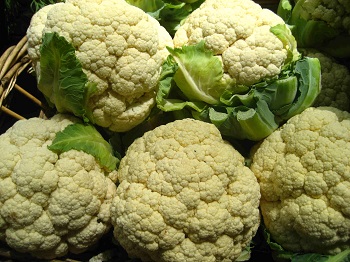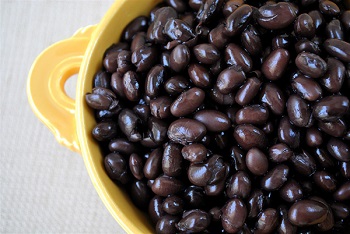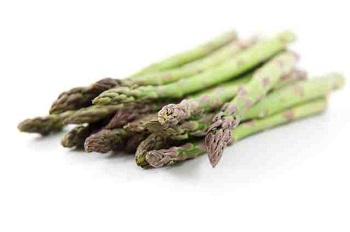Nurses need the recommended amount of vitamins and minerals to function effectively everyday. Although you can get these nutrients through nutritional supplements, relying on a healthy balanced diet is always a better alternative. For one, intake of vitamin supplements poses a higher risk of toxicity—specifically Vitamin A—than natural food sources. In addition to that, some herbal supplements have been found to be ineffective or even dangerous.
To get your daily dose of vitamins and minerals, it is best to eat natural food sources. In order for nurses to meet the demands of their work, they should eat at least five to seven servings of fruits and vegetables, dairy products, and whole grains. To provide you with a more in-depth explanation, here are ten of the best vitamins for nurses you ought to know:
1. Vitamin C
Also known as Ascorbic Acid or dehydroascorbic acid (DHA), this vitamin is a powerful antioxidant which supplies electrons to free radicals. It works best with other nurtrients, as it activates white blood cells to fight off bacteria and viruses.
Vitamin C is an essential part of our diet because our body is unable to make it on its own. It is involved in the response of our body to stress and has been proven to be beneficial when dealing with so many pains and diseases.
Best sources: Broccoli, apples, berries, cabbage, cherries, potatoes, pumpkin, spinach, soya bean, peppers, pinapples, parsley, melons, papaya, leeks, mangoes, kale, collards, walnuts, tomatoes, strawberries and radish.
2. Calciferol
Nurses need calcium to maintain healthy bones and withstand long hours of standing and running around in the unit. Calciferol aids in the absorption of calcium and phosphorus. It also helps protect us from age-related diseases.
Beest sources: Fortified cereals, egg yolk, butter, fish liver oil, fortified milk, mushrooms, liver and high-fat fish.
3. Biotin
Vitamin B7, also known as Biotin or Vitamin H, helps regulate blood sugar levels and has an important role in fatty acid metabolism and energy production. Nurses need this vitamin to fight off fatigue and stress. It also helps promote healthy skin, nails and hair.
Best sources: Peanuts, spinach, liver, cauliflower, egg yolks, milk and mushrooms.
4. Thiamine
This B-vitamin (Vitamin B1) is needed to produce Adenosine Triphosphate (ATP) which is required by the body to create energy. Not only does it promote energy production, it also offers nervous system support.
Best sources: Oats, peas (green, dried, lima or pinto), lentils, sunflower seeds, black beans and navy beans.
5. Niacin
Niacin plays a key role in the metabolism of carbohydrates, fat and protein. It also helps us maintain a healthy digestive and nervous system. Because it is vital in producing energy, nurses need this vitamin to stay healthy and energized.
Best sources: Eggs, fish, liver, peanuts, wheat bran, wheat germ, red meat and poultry.
6. Pyridoxine
Vitamin B6 helps in maintaining a healthy nervous and immune system. Although deficiency is rare, it is best for nurses to consume enough food that contain this vitamin to help them combat stress.
Best sources: Legumes, meat, milk, potatoes, green peppers, fish, egg yolks, grains, and green leafy vegetables.
7. Cobalamin
Vitamin B12 helps maintain a healthy nervous system and is needed to have a healthy blood formation. It also promotes growth and can help nurses maintain their energy throughout their shift. It is found naturally in mostly foods of animal origin.
Best sources: Although it is sensitive and may be destroyed by cooking, it can still be found in some dietary sources such as dairy products, meat, organ meat, salt-water fish and cheese.
8. Riboflavin
One of the vitamins that have pain-relieving properties (in combination with Vitamins B1 and B12), this vitamin promotes healthy skin and good vision. Because they work at hospitals, nurses are prone to different diseases. Just like Vitamin C, riboflavin can also help prevent these diseases from infecting our systems.
Best sources: Green leafy vegetables, eggs, legumes, mushrooms, nuts and milk products.
9. Folate
Vitamin B9 is known to improve one’s mood and combat stress. This vitamin is ideal for nurses who experience too much stress at work, as it also helps in energy production.
Best sources: Cooked lentils, beans, asparagus, lettuce, avocado, broccoli, oranges, wheat bread, yeast, mushrooms, orange and tomato juice, bananas and melons.
10. Tocopherol
Vitamin E is one of the most powerful anti-oxidants that can protect us from free radicals. It also improves blood flow to all tissues and looks after our red blood cells.
Best sources: You can find it almost exclusively in plants like fresh wheat germ, brussel sprouts, kiwi, asparagus, sweet potatoes, nuts and seeds. Other sources include shrimps, dairy products and egg yolks.
Maintaining our good health will save us from the illnesses that we might catch during clinicals. Keep in mind that although it seems like we have superpowers, nurses are people too and also deserve to have a healthy body, mind and spirit. Stay healthy, nurses!
About the Author: Mary Elizabeth Velarmino Francisco earned her Bachelor of Science in Nursing Degree from the Ateneo de Zamboanga University, Philippines. She is always happy to share her passion for writing and blogging. With coffee running through her veins, she enthusiastically battles each day, one article at a time.





























